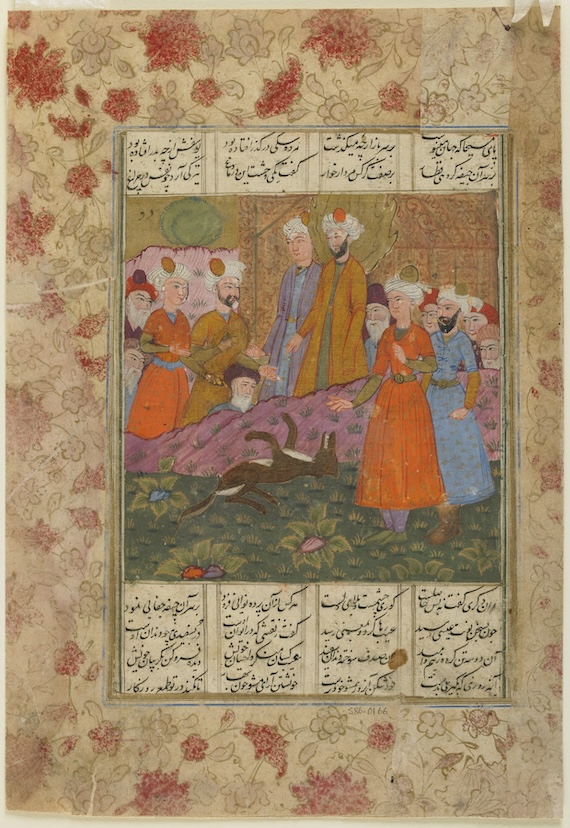On Christmas Day, I like to recall the significance of Jesus and the nativity for Muslims. I’ve talked about Rumi, Attar, and other mystics. Today it is Nezami’s turn.
The great Persian poet Nezami (1141-1209) was from the city of Ganja in northwestern Iran when it was ruled by the Seljuk Empire. That was the era of the Crusades and Richard Lionheart, though the Crusader kingdoms were far from Iran and Nezami only once left home, to see the king. In his Treasury of Mysteries, this Muslim poet refers to Christian themes several times.
The most famous reference is an anecdote clearly rooted in folk culture, though it captures something of Jesus’ love for the despised humble folk (courtesans and tax-collectors). Here is my hurried, loose rendering:
The feet of Christ, which traced the world,
passed by a small market one day.
A dog big as a wolf lay fallen.
Like Joseph, the coat of its beauty was bloodied.
A crowd of spectators gathered at the scene,
like vultures circling the carcass.
One said, “This gruesome sight poisons
the mind, the way a breath blows out a lamp.”
Another said, “It is a pure blight —
It is blindness for the eye, a plague on the heart.
All expressed their own opinion,
heaping scorn each in turn.
When came the turn of Jesus to speak,
he eschewed blame and went straight to the truth of the matter.
He said, “How fine was its bodily form,
and no white pearl can compare to its teeth.”
Unlike the others around him, Jesus is here depicted as finding something to admire even in the disgusting, putrid carcass of a dead dog, according to this mystical teaching story. Nezami goes on to advise people not to focus on the faults of others and preen about their own virtues. He warns against being too full of admiration for yourself when you look in a mirror. He says that decking yourself out in finery fresh as the spring is dangerous. Fate is out there, looking for prey to devour, and you don’t want to attract attention to yourself.
Here is an Iranian artist’s rendering of the scene from the Safavid period, early 1600s:

“Folio from a Makhzan al-asrar (Treasury of secrets) by Nizami (d.1209); verso: Jesus and the dead dog; recto: text: The tenth article.” National Museum of Asian Art . Creative Commons 0.
Nezami adds in Sufi fashion,
The entirety of this world, old or new,
is fleeting, and not worth two barley grains.
Do not grieve for this world, but rise, sir,
and if you do grieve, pour out some wine for Nezami.
Nezami’s story is an illustration of Matthew 7:3-5
- 3 Why do you see the speck in your neighbor’s eye but do not notice the log in your own eye? 4 Or how can you say to your neighbor, ‘Let me take the speck out of your eye,’ while the log is in your own eye? 5 You hypocrite, first take the log out of your own eye, and then you will see clearly to take the speck out of your neighbor’s eye. (New Revised Standard Version Updated Edition).
The Gospels also show Jesus as reminding people that they are in no position most of the time to judge others for their flaws, as when he defended the woman accused of adultery from being stoned in John 8:7
- 7 When they kept on questioning him, he straightened up and said to them, “Let anyone among you who is without sin be the first to throw a stone at her.” (New Revised Standard Version Updated Edition)
Muslim poets and story-tellers told lots of anecdotes about Jesus that are not in the Gospels. He was a figure of wisdom and self-denial, and the Persian mystics used him to symbolize the potential of the soul for spiritual growth.


 © 2026 All Rights Reserved
© 2026 All Rights Reserved